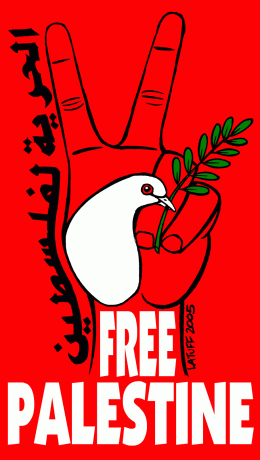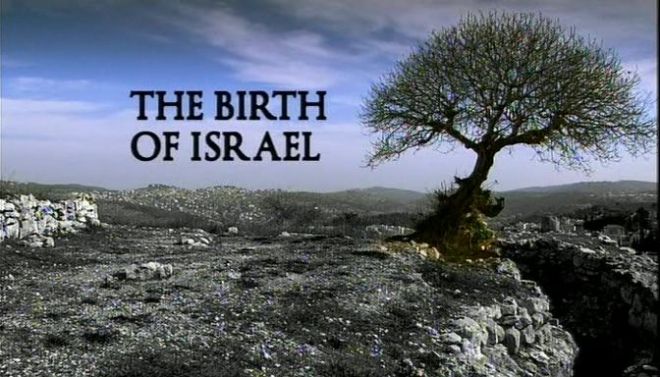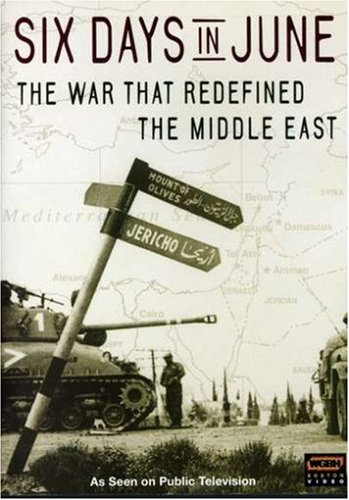
Art by Venezuelan artist Eneko updates Pablo Picasso’s “Guernica”
Arundathi Roy:
In 1937 Winston Churchill said of the Palestinians: ‘I do not agree that the dog in a manger has the final right to the manger even though he may have lain there for a very long time. I do not admit that right. I do not admit for instance that a great wrong has been done to the red Indians of America or the black people of Australia. I do not admit that a wrong has been done to these people by the fact that a stronger race, a higher grade race, a more worldly wise race to put it that way, has come in and taken their place’. That set the trend for the Israeli state’s attitude towards Palestinians. In 1969, Israeli Prime Minister Golda Meir said: ‘Palestinians do not exist’. Her successor, Prime Minister Levi Eshkol, said: ‘What are Palestinians? When I came here [to Palestine] there were 250,000 non-Jews, mainly Arabs and Bedouins. It was desert, more than underdeveloped. Nothing’. Prime Minister Menachem Begin called Palestinians ‘two-legged beasts’. Prime Minister Yitzhak Shamir called them ‘grasshoppers’ who could be crushed. This is the language of heads of state, not the words of ordinary people.
In 1947 the UN formally partitioned Palestine and allotted 55% of Palestine’s land to the zionists. Within a year they had captured 78%. On May 14, 1948, the state of Israel was declared. Minutes after the declaration, the US recognized Israel. The West Bank was annexed by Jordan. The Gaza strip came under Egyptian military control. Formally, Palestine ceased to exist except in the minds and hearts of the hundreds of thousands of Palestinian people who became refugees.
In the summer of 1967, Israel occupied the West Bank and the Gaza Strip. Settlers were offered state subsidies and development aid to move into the occupied territories. Almost every day more Palestinian families are forced off their lands and driven into refugee camps. Palestinians who continue to live in Israel do not have the same rights as Israelis and live as second-class citizens in their former homeland.
Over the decades there have been uprisings, wars, intifadas. Tens of thousands have lost their lives. Accords and treaties have been signed, ceasefires declared and violated. But the bloodshed doesn’t end. Palestine still remains illegally occupied. Its people live in inhuman conditions, in virtual Bantustans, where they are subjected to collective punishments, 24-hour curfews, where they are humiliated and brutalised on a daily basis. They never know when their homes will be demolished, when their children will be shot, when their precious trees will be cut, when their roads will be closed, when they will be allowed to walk down to the market to buy food and medicine. And when they will not. They live with no semblance of dignity. With not much hope in sight. They have no control over their lands, their security, their movement, their communication, their water supply.
So when accords are signed and words like ‘autonomy’ and even ‘statehood’ are bandied about, it’s always worth asking: What sort of autonomy? What sort of state? What sort of rights will its citizens have? Young Palestinians who cannot contain their anger turn themselves into human bombs and haunt Israel’s streets and public places, blowing themselves up, killing ordinary people, injecting terror into daily life, and eventually hardening both societies’ suspicion and mutual hatred of each other. Each bombing invites merciless reprisals and even more hardship on Palestinian people. But then suicide bombing is an act of individual despair, not a revolutionary tactic. Although Palestinian attacks strike terror into Israeli civilians, they provide the perfect cover for the Israeli government’s daily incursions into Palestinian territory, the perfect excuse for old-fashioned, 19th century colonialism, dressed up as a new-fashioned, 21st century ‘war’.
Israel’s staunchest political and military ally is and always has been the US government. The US government has blocked, along with Israel, almost every UN resolution that sought a peaceful, equitable solution to the conflict. It has supported almost every war that Israel has fought. When Israel attacks Palestine, it is American missiles that smash through Palestinian homes. And every year Israel receives several billion dollars from the US.
What lessons should we draw from this tragic conflict? Is it really impossible for Jewish people who suffered so cruelly themselves — more cruelly perhaps than any other people in history — to understand the vulnerability and the yearning of those whom they have displaced? Does extreme suffering always kindle cruelty? What hope does this leave the human race with? What will happen to the Palestinian people in the event of a victory? When a nation without a state eventually proclaims a state, what kind of state will it be? What horrors will be perpetrated under its flag? Is it a separate state that we should be fighting for, or the rights to a life of liberty and dignity for everyone regardless of their ethnicity or religion? – ARUNDHATI ROY
* * * * *
To delve deeper into the roots of the matter, I share with Awestruck Wanderer’s readers three excellent documentaries. They have taught me a great deal about the history of the Middle East’s conflicts and still have a lot to say to us under the present tragic situation. They are: BBC’s The Birth of Israel; Ilan Ziv’s Six Days in June – The War That Redefined The Middle East; and B.Z. Goldberg’s Promises. I’ve managed to gather these films here – including YouTube or Vimeo full-lenght videos, official synopsis and other relevant information. If you find this documentaries as relevant as I do, please share the knowledge!
“On 14 May 1948 Prime Minister David Ben Gurion announced the establishment of the state of Israel in the portion of Palestine allocated by the UN as a Jewish state. For the Israelis, the events of 1948 were a triumph; for the Palestinians it was the beggining of the ‘naqba’ – the catastrophe which saw them driven from their homeland. Within 24 hours the armies of Egypt, Jordan and Syria attacked. What followed was the first of many bloody wars between Israel and the Arabs – a bitter struggle which has dominated the region for the past 60 years and continues to threaten global security. Jeremy Bowen travels to Israel and the neighbouring countries involved in the conflict to take a fresh look at the events leading to the foundation of the state of Israel. Using a combination of rarely seen archive footage, historical eyewitness accounts and interviews with the surviving political, diplomatic and military figures of the time from both sides of the divide, Jeremy uses the history of the period as a prism to reflect the current state of the Israeli / Palestinian conundrum. Interviews include Shimon Peres, David Den Gurion’s right hand man and now president of Israel, and Hassan Nusseibeh, Jordanian Ambassador to the UN, among others. Challenging existing myths – promulgated by both sides – about the founding of Israel, this is a fresh perspective on an ongoing conflict.”
BBC Production. 2009. 60 mins.
* * * * *
“In June of 1967, a war pitted the Israelis against the Arabs and the US against the Soviet Union. It lasted only 6 days, but it changed the Middle East, and America’s policy towards the region, and the war’s results are embodied in every aspect of the current bloody Middle East conflict. This groundbreaking documentary provides a fresh perspective on the war, bringing to life its battlefields, politics, and the personal histories of the many lives it affected. Today, the regions remains trapped in a never-ending cycle of occupation, terrorism and reprisal, much of which is caused by the same animosity that triggered the war in the first place. Shot in location in Israel, Palestine, Egyps, Syria, Jordan, Moscow and Washingston, and using newly declassified archives, home movie footage and personal photographs, evocative recreations, and dozens of interviews with participants, this film offers unprecedented insight into the story of the Six Day War. With an extraordinary cast of characters – Israeli Prime Minister Levi Eshkol, Defense Minister Moshe Dayan, Egyptian President Gamal Abdel Nasser, Field Marshal Amer, and Lyndon B. Johnson, to name a few – Six Days in June examins how the war came about, how it was fought, and how it reshaped the regional political landscape… all in six days.”
* * * * *
“B.Z. Goldberg, an American filmmaker who was raised in Jerusalem and is fluent in both Hebrew and Arabic, returned to the Middle East to help make this documentary, which chronicles his encounters with seven children between the ages of 11 and 13, some Israeli and some Palestinian, who discuss their political views, their thoughts about the ongoing violence in their homelands and the possibility of a lasting peace, and the impact the aggression has had upon them. Encompassing extremists and moderates on both sides of the fence, the seven youngsters are interviewed individually and then brought together, where their common interests become clear — as well as the fact that it’s quite possible they’ll never live together in peace. Co-directed by Goldberg with Justine Shapiro and Carlos Bolado, Promises won the Audience Award at the 2001 Rotterdam Film Festival.” – Amg All Movie Guide






Pingback: Shaking Hands with Other People’s Pain | A W E S T R U C K _W A N D E R E R
Pingback: Shaking Hands with Other People’s Pain | A CASA DE VIDRO
Pingback: “EXAMINED LIFE – PHILOSOPHY IS IN THE STREETS” (awesome doc!) | A W E S T R U C K _W A N D E R E R
Pingback: “Refusing to be Enemies”, an exclusive video interview with Maxine Kaufman-Lacusta at the Peoples Social Forum 2014 | A W E S T R U C K _W A N D E R E R
Pingback: PALESTINE WILL BE FREE(?) – More than 10.000 people come together in Amsterdam for a mass demonstration in solidarity with Palestine – A CASA DE VIDRO.COM
Pingback: CARNIFICINA NA PALESTINA – Arundathi Roy explica as raízes históricas do conflito – A CASA DE VIDRO.COM
Pingback: Refusing to be Enemies – An interview with Maxine Kaufman Lacusta at the Peoples Social Forum 2014 – A CASA DE VIDRO.COM